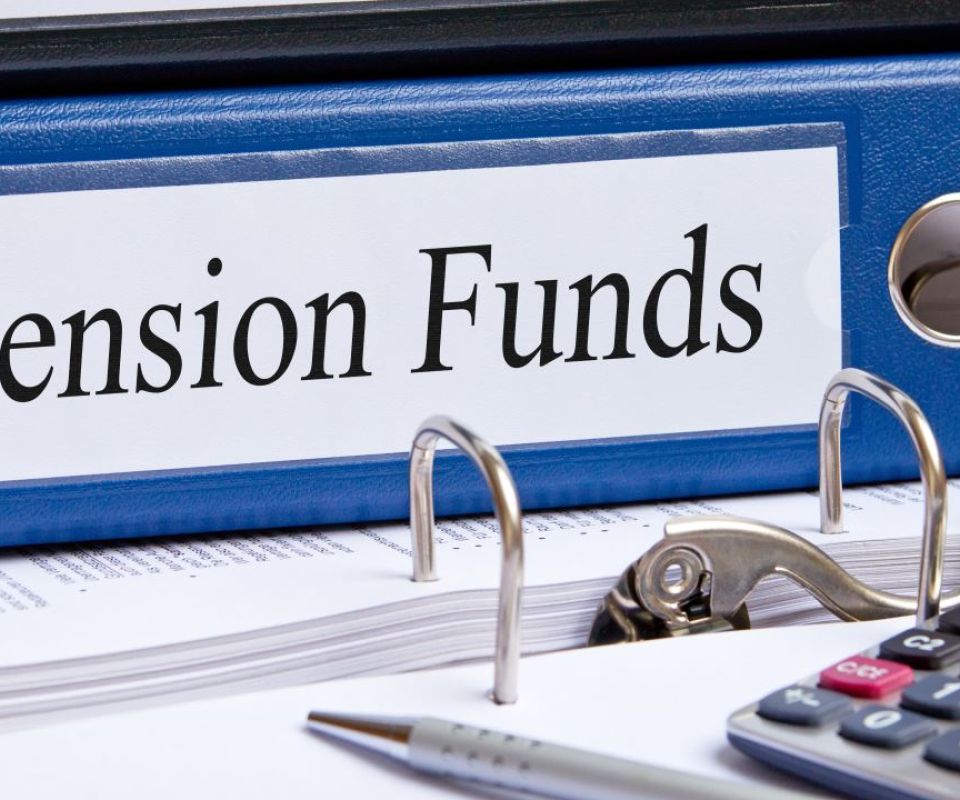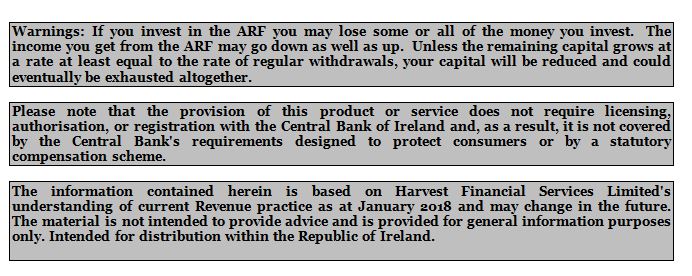What is a Self Administered Approved Retirement Fund (ARF)?

What is a Self Administered Approved Retirement Fund (ARF)?
A Self Administered ARF allows you to take control over where these funds are invested. It lets you place some, or all, of your pension fund value, depending on your preference, in a wide range of investments. These could be deposit accounts, a share portfolio, a tenanted property, an investment in a managed fund, or a combination of any or all of these. You are then free to draw a regular income from the fund if you so choose.
What are the benefits a Self Administered ARF?
A self administered ARF gives a variety of benefits to you in retirement including:
- you have access to a wide variety of investment options and providers;
- you can make investments that fit your risk appetite;
- your investments grow free of both income tax and capital gains tax;
- you choose when to withdraw funds from your ARF and how much you take*; and
- on death, your ARF passes to your estate.
*How do I take income from an Approved Retirement Fund?
You are required by the Revenue Commissioners to take a minimum distribution from your ARF annually once you are aged 61 years.
The minimum annual distributions are:
- 4% if you are not aged 70 years or over for the whole of the tax year and the value of your ARF is less than €2,000,000;
- 5% if you are aged 70 years or over for the whole of the tax year and the value of your ARF is less than €2,000,000; and
- 6% if the value of your ARF exceeds €2,000,000.
If you do not take a distribution in any given tax year there will be a tax bill due from your ARF. This is remitted in February of the following year for the imputed tax due on 4% / 5% / 6% of your ARF and based on the value as at the preceding 30th of November.
What happens to the Approved Retirement Fund (ARF) when I die?
On your death your ARF can be transferred to your spouse / civil partner tax-free who can continue to manage the ARF investments and take withdrawals.
Alternatively your ARF can be left to your children or other persons subject to income and / or inheritance tax which are summarised below.
| ARF Inherited by…… | Income Tax Due | Capital Acquisitions Tax Due |
| Surviving Spouse | None, where transferred into an ARF of surviving spouse.
Yes, if not transferred to ARF to survivor’s spouse. This will be treated as a taxable distribution by the deceased in the year of his/her death. |
None |
| Child aged 21+ at date of death | Yes. Income Tax at rate of 30% | None |
| Child aged less than 21 at date of death | None | Yes, normal inheritance tax rules apply. |
| Anyone else (not surviving spouse or children) |
Yes. This will be treated as a taxable distribution by the deceased in year of his/her death. | Yes, normal inheritance tax rules apply. |
How do I know if the Harvest ARF is suitable for me in retirement?
The Harvest ARF may be suitable for you if you:
- Would like to have control over the assets in which your ARF is invested.
- Would like an ARF where there are no allocation rates and no penalties if you decide to change provider.
- Where the ARF is managed in an entirely transparent manner.

